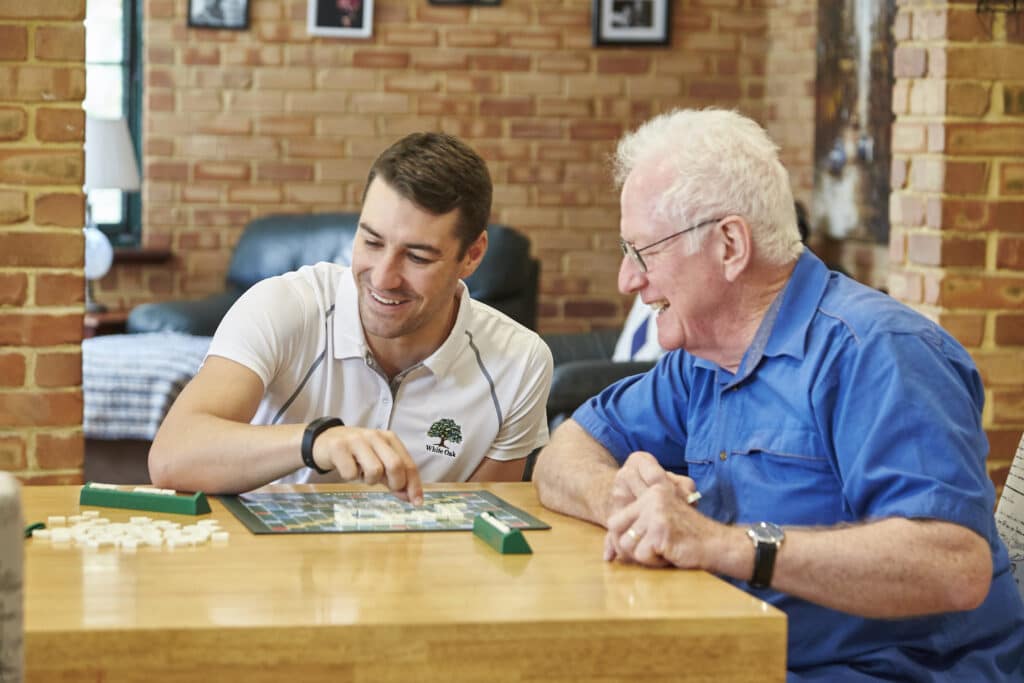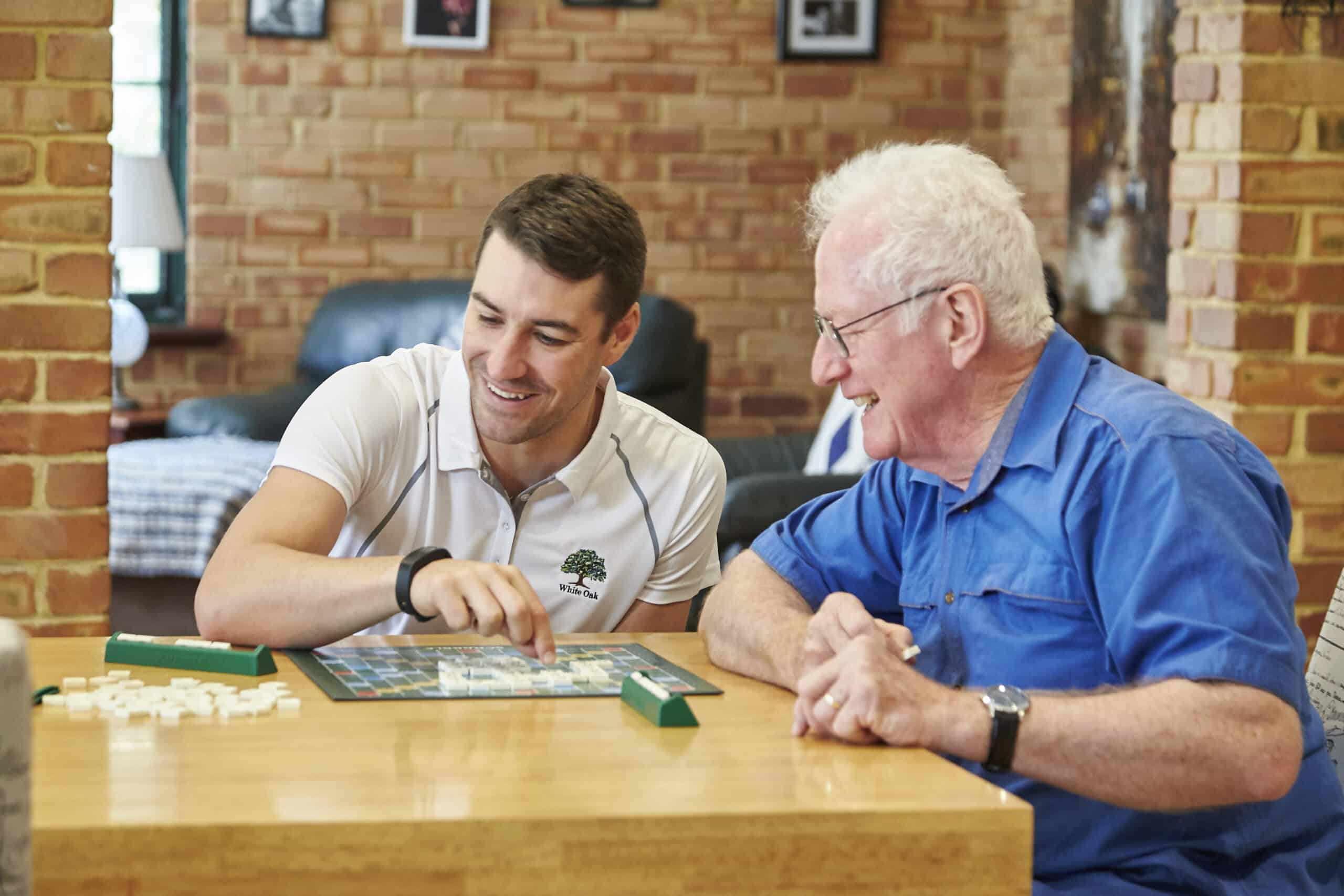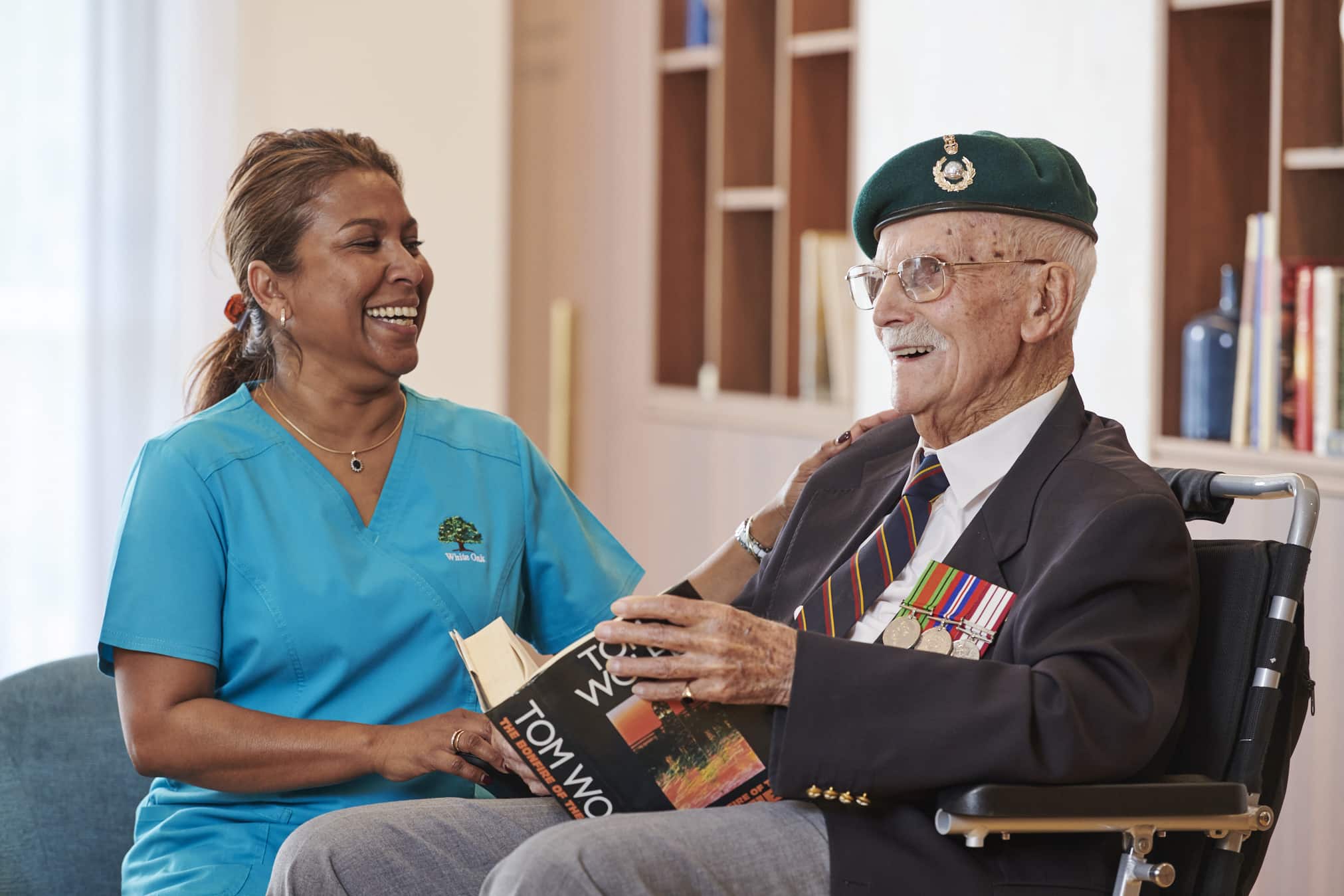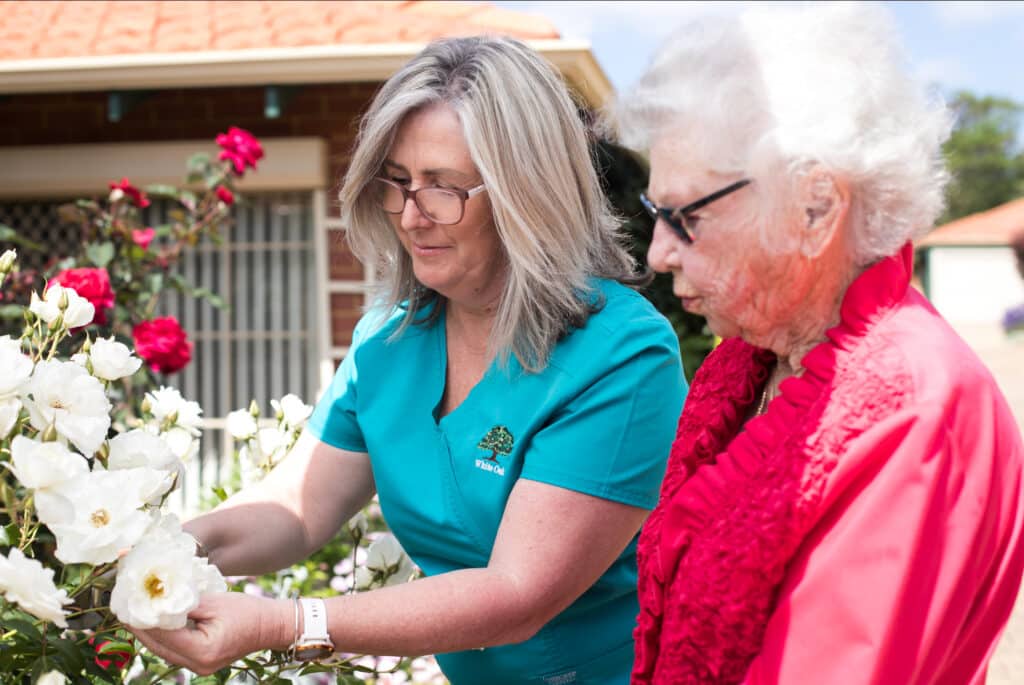Discover some of the warning signs of anxiety and depression amongst seniors to help support, empower, and assist your elderly loved ones.
Building Positive Relationships with In-Home Carers: A Guide for Adult Children of Elderly Loved Ones
Having an elderly parent or loved one who requires in-home care assistance can be challenging. For adult children, ensuring that your family is being properly taken care of in a way that safeguards their wellbeing and happiness is critical for peace of mind.
One of the best ways to make sure your elderly family members are being taken care of is by creating a positive relationship with their in-home carers and providers. Strong, respectful and positive relationships with carers will ensure not just the best possible care but also allow you to enjoy a more productive and mutually respectful relationship.
So, how do you go about building a positive relationship with in-home carers? Here are our top strategies.
How to Build Positive Relationships with In-Home Carers
1. Mutual Respect is Key
Respect, in all relationships, works both ways. Treating your in-home carers with respect and empathy will show them that not only do you recognise the invaluable role they play in your life and the life of your loved ones, but that you acknowledge their expertise and appreciate their efforts. Just about everyone, when treated with respect, will respond in kind – and the opposite holds true as well.
2. Keep Communication Open
Communication is critical, and open communication from the very start will form a bedrock from which you can grow a positive relationship with your in-home carers. Open communication fosters a rapport and understanding and allows important information regarding preferences, routines, medical needs, and the like to be shared both ways. The more open your lines of communication, the more frequent and better updates you’ll receive from the carers. This, in turn, will give you greater peace of mind will be.
3. Set Clear Boundaries
Open communication should never mean the erosion of boundaries. Setting clear expectations is part of effective communication. Whether you need to draw a line regarding your own involvement or discuss the preferences of your parents/loved ones, setting unambiguous boundaries is critical to ensure misunderstandings are avoided and a positive relationship enabled.
4. Work as a Team
Your relationship with your in-home carers shouldn’t be transactional. Nor should you consider your own involvement to be of ‘lesser’ importance. Caring for elderly family members requires a team effort, and by team effort we mean ongoing collaboration to ensure needs are met, preferences respected and the best results achieved.
5. Schedule Regular Check-Ins
As adult children, it can be understandable that in the chaos and tumult of our everyday lives we drop the ball when it matters most. By scheduling regular check-ins with the in-home carers, you can develop a positive habit of not just addressing concerns of your loved ones, but also maintaining and building on the positive relationship with them. Consistent check-ins allow for observations, suggestions and improvements to be made punctually for maximum benefit.
6. Show Appreciation
Your in-home carers are providing your loved ones with a critically important and impactful service. Expressing gratitude and showing your appreciation for the dedication and care that such a job entails can go a long way to making your carers feel understood, valued and seen. Even a simple “thank you” can make an incredible difference in the fostering of a positive working relationship.
7. Regularly Reassess the Care Plan
Care plans are not a ‘set and forget’ mechanism. Regularly reviewing the care your loved ones are receiving and the way they are receiving it can ensure that it is adapted according to their evolving needs. Work with your in-home carers to analyse what is and isn’t working. Share your observations and collaborate through open, honest discussion with both the carers and – of course – your loved ones.
8. Resolve Conflicts Constructively
The reality is that conflicts and disagreements between the children of elderly individuals and their carers do happen. Remember that everyone wants what is best for your loved ones. Even in the face of conflict, maintain respect and be polite. The more promptly you address conflicts, the easier it will be to design and implement a mutually beneficial solution. All resolutions should, of course, prioritise your loved one’s well-being and if you and your in-home carers are laser focused on that outcome, you can be assured of a positive working relationship.
9. Keep Your Focus on Your Loved Ones
As we mentioned at the top of this article, organising and managing in-home care for a parent or loved one can be emotionally (as well as physically) draining. In addition to the general stress of life, the stress of ensuring your loved ones are taken care of can often make it more difficult to invest the time and energy necessary to build positive relationships with carers. Maintaining a focus on the real priority here – your loved ones’ well-being – will help you focus on the things that matter most and ensure that any disagreements between you and your carers can be resolved in a way that ultimately puts their needs first and foremost.
10. Ask Your Parent/Loved One
Most of the strategies above are focused, understandably, on your interaction with the in-home carers. However, asking your elderly parent or loved one about their experiences, preferences and needs in relation to their in-home care will help you cultivate a stronger understanding of the situation and identify any needs for change in care. Somewhat paradoxically, it can be difficult to foster positive relationships with the carers without maintaining positive relationships and open communication with your loved ones themselves.
White Oak – home care packages as unique as your needs
The White Oak team has more than 25 years of experience providing tailored in-home care for the elderly. We understand that every single one of our residents and clients is unique in their own right and deserve a unique care plan.
We work with you and your loved ones to put together a package that respects everyone’s requirements, preferences and dignity.
To find out more about what we offer, make sure to contact our in-home care team today.





